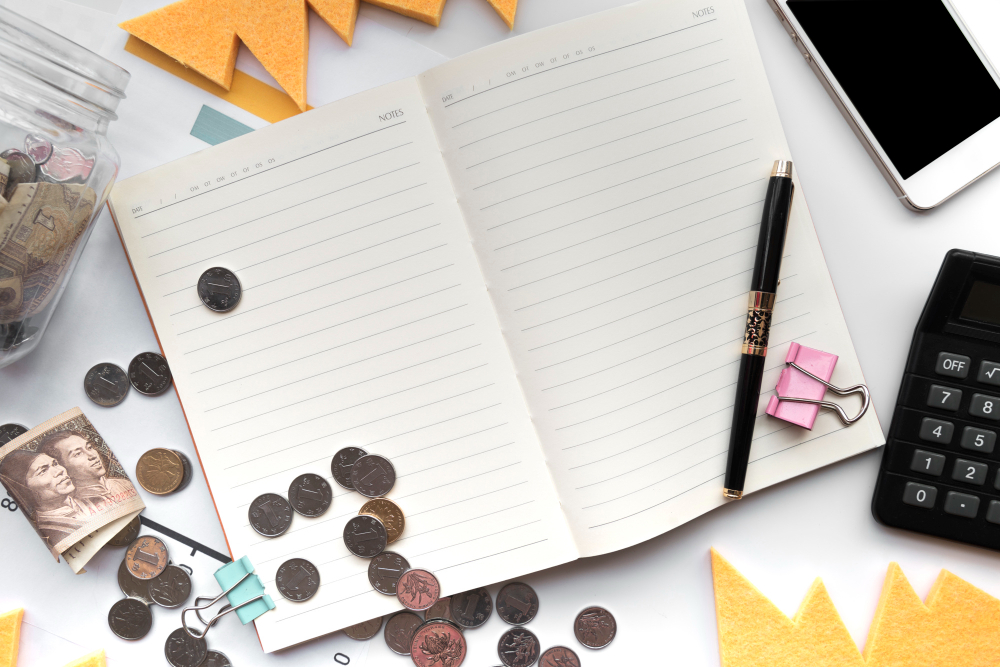How I Created a Budget and Stick to It

When I first decided to take control of my finances, creating and sticking to a budget seemed like a daunting task. However, I soon realized that with a little planning and discipline, budgeting could become a powerful tool for achieving financial stability and peace of mind. Here’s my personal journey on how I created a budget and managed to stick to it.
First Impressions: Taking the First Step
The initial step towards creating a budget was acknowledging that I needed to better manage my finances. Understanding my financial habits and spending patterns was crucial. I started by tracking every expense for a month, which opened my eyes to where my money was going and where I could make improvements.
Setting Clear Financial Goals
Having clear financial goals gave my budget a purpose. I defined short-term goals like paying off credit card debt and long-term goals such as saving for a vacation or building an emergency fund. These goals kept me motivated and focused on sticking to my budget.
Creating a Realistic Budget
Once I had a clear understanding of my spending habits and financial goals, I created a realistic budget. I listed all sources of income and categorized my expenses into fixed (rent, utilities) and variable (groceries, entertainment). I ensured that my budget was realistic and flexible enough to accommodate unexpected expenses.
Tips:
Use budgeting tools or apps like Mint or YNAB to simplify the process.
Be honest about your spending habits to create a budget that works.
Allocate a portion of your income to savings and emergencies.
Tracking Expenses
Tracking my expenses was essential to staying on budget. I used a budgeting app to log my daily expenses, which helped me see where my money was going in real-time. This habit kept me accountable and allowed me to make adjustments as needed.
Tips:
Review your spending weekly to stay on track.
Categorize expenses to identify areas where you can cut back.
Set spending limits for discretionary categories like dining out or entertainment.
Cutting Unnecessary Expenses
Identifying and cutting unnecessary expenses was a game-changer. I scrutinized my spending and found areas where I could save money without sacrificing my lifestyle. This included canceling unused subscriptions, cooking at home more often, and finding free or low-cost entertainment options.
Tips:
Prioritize needs over wants when evaluating expenses.
Look for cost-effective alternatives for regular expenses.
Avoid impulse purchases by waiting 24 hours before buying non-essential items.
Building an Emergency Fund
Creating an emergency fund was a critical part of my budgeting journey. I set aside a small amount each month until I had a fund that could cover three to six months of living expenses. This fund provided a financial safety net and reduced stress about unexpected costs.
Tips:
Automate savings to ensure consistent contributions to your emergency fund.
Start small if necessary, and gradually increase the amount you save.
Keep your emergency fund in a separate, easily accessible account.
Staying Motivated
Staying motivated was key to sticking with my budget. I regularly reviewed my financial goals and tracked my progress. Celebrating small victories, like paying off a credit card or reaching a savings milestone, kept me motivated and on track.
Tips:
Visualize your financial goals to stay motivated.
Share your progress with a friend or family member for accountability.
Reward yourself occasionally for sticking to your budget.
Adjusting the Budget as Needed
A budget isn’t set in stone. I learned to adjust my budget as my financial situation changed. Whether it was an increase in income or an unexpected expense, being flexible and revisiting my budget regularly ensured that it remained effective and relevant.
Tips:
Review your budget monthly and adjust for any changes in income or expenses.
Be proactive in reallocating funds to meet changing priorities.
Don’t be afraid to make significant changes if your financial goals or situation shifts.
Conclusion: The Power of Budgeting
Creating and sticking to a budget has transformed my financial life. It has given me control over my finances, reduced stress, and allowed me to achieve my financial goals. Budgeting isn’t about restricting yourself; it’s about making informed choices and being intentional with your money.
Recommending the Budgeting Journey
For anyone looking to take control of their finances, I highly recommend creating a budget. Start by understanding your spending habits, set clear goals, and create a realistic plan. With discipline and regular adjustments, you’ll find that sticking to a budget is not only achievable but also incredibly rewarding. Happy budgeting!
Related Posts

Investing in Dubai: Why Now is the Best Time for Real Estate
Transforming My Smile in Albania: A Dental Journey with Sky Dental Albania, a hidden gem in the Balkans, has seen

Regaining My Hair and Confidence: A Hair Restoration Journey with Nouvelle Clinique in Albania
Regaining My Hair and Confidence: A Hair Restoration Journey with Nouvelle Clinique in Albania When I started considering traveling abroad
